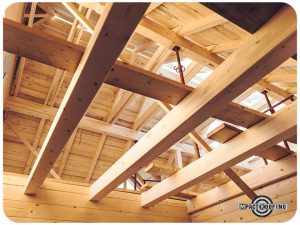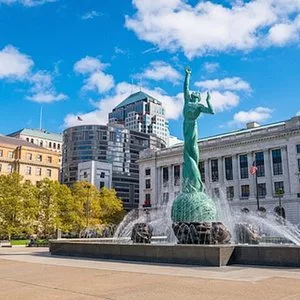What Is a Proprietary Lease for a co-op Apartment?
Go Back To Previous PageA proprietary lease for a coop apartment is a contract between an owner (aka shareholder) and a cooperative corporation. Most of the units in New York City are coops. Indeed, the proprietary lease is one of the documents within the co-op’s offering plan. Condos do not have a Proprietary Lease, so individuals buying an apartment & condo owners have never heard of this. This legal concept covers the specifics of the relationship between shareholders and the cooperative. Therefore, it outlines the rules for renovating, subletting, maintenance, repairs, and more. In other words, this contract governs the relationship between the various parties. In other words, this agreement regulates the terms of the shareholder’s residency in the building. Also, this contract explicitly designates their apartment in the building.
Definition of a proprietary lease for a co-op apartment
A proprietary lease is a contract between a co-op apartment owner and the board of directors. This document establishes the rules for the owner’s residency. Most of our blog posts remind us that the co-op apartment owner is only a “shareholder.”

Proprietary lease coop
- a stock certificate with the number of co-op shares they own
- a proprietary lease enables each owner to occupy the apartment he “bought” Forever
This owner does not own his apartment but only the co-op. Legally, the unit is not considered real property. This entity or “co-op” owns the building (the rest of the estate itself). Under NYC’s rent regulation laws, the shareholder is not considered a statutory tenant.
Instead, the contract governs the relationship between the shareholder and the co-op. The proprietary lease also governs the business law of corporations in New York State. Lastly, this law operates for the benefit of all shareholders.
Difference between the proprietary lease and co-op bylaws

- The co-op’s bylaws dictate the co-op organization and management. The bylaws highlight election rules and indemnify officers and directors. Lastly, they also grant powers to the co-op on behalf of the shareholders.
- On the other hand, the contract focuses on the contractual relationship between each shareholder and the co-op. It defines rights and responsibilities for both the owner and the cooperative.
Content of the proprietary lease for a co-op apartment
a) The proprietary lease for a co-op apartment dictates how shareholders pay their monthly maintenance charges.
b) The proprietary lease spells out the responsibilities of the co-op corporation.
This document reminds each shareholder that the co-op’s responsibility is to maintain the building in good condition. This responsibility includes common areas (sidewalks, gym, hallways, stairways, elevators, etc.). It also goes over what utilities the HOA has, generally water and gas.
c) Right of accounting inspection by owners
Annually, the co-op provides certified financial reports that are available to all shareholders.
Besides, shareholders can look into the accounting books any day they want with proper notice.
d) Every owner has the same lease.
By definition, each proprietary lease remains the same. Only a majority of the two-thirds of the owners’ shares can update it. Therefore, when that happens, all shareholders will get a new lease.
e) The proprietary lease indemnifies the co-op of any liability
The cooperative is not liable for any damage from the shareholder’s failure to comply with the proprietary lease. The same rule applies to anyone visiting the apartment, including a guest or contractor.
f) Breaching the house rules represents a default according to the proprietary lease.
The co-op can alter or amend the house rules, which are technically part of the proprietary lease and given simultaneously. Shareholders must comply with all the house rules and ensure that the family, guests, employees, or subtenants observe them. As a result, a simple house rule breach represents a default under the proprietary lease.
g) Smell and noise
The owner can cook without generating little odors in the rest of the building. The owner can’t cause any excessive noise, either. Lastly, the owner cannot obstruct public hallways or stairways.
h) Shareholders automatically lose if somebody files a mechanic’s lien.
Suppose a mechanic’s lien against the building gets filed. The owner needs to take care of it immediately. The owner can pay this lien quickly. If the owner fails to do it, the co-op may deal with it without investigation.
The cooperative has the right to collect all amounts paid. The co-op will also charge the owner attorney’s fees, disbursements, and interests.
In short, the owner automatically loses in a dispute with a contractor. For example, a plumber may come by and not fix your in-unit boiler. However, he will send you a bill for $10,000 anyway for “labor.”
If you dispute this work, the plumber may file a mechanic’s lien. Technically, the claim is on the entire building; therefore, the co-op will automatically pay without investigating. Then, the co-op will bill the owner the amount plus any additional expenses.
Essentially, shareholders lose in any dispute with a contractor. Therefore, it is challenging to get that money back, and the owner must appeal or start a lawsuit.
i) The co-op always has access to your unit
Every owner is required to share a key with the co-op. If the building’s super can’t get in, they can break in at the owner’s expense. However, the co-op must provide you with reasonable and without notice in an emergency.
j) The co-op can kick you out and repossess your unit.
If the shareholder violates the proprietary lease, the co-op can enter the apartment and remove everything with Board approval. Some conditions will automatically terminate the lease, such as:
- Owner becoming bankrupt
- Unauthorized subletting or occupancy
- Default in rent payments
- Default in other covenants
- Owner’s offensive conduct
The board can opine an owner or a visitor’s attitude is offensive.
The board can terminate the owner’s proprietary lease if this behavior persists after sending a notice.
Will the co-op renew my proprietary lease?
Yes. Typically, the board extends the lease term when it reaches 25 or 30 years in the future. The goal is to maintain maturity between 30 and 50 years.
This is because a proprietary lease that expires under 30 years may cause problems with potential lenders.
Can’t co-op boards extend proprietary lease maturities to thousands of years?
Sadly no. Tax authorities could interpret such a long lease period as a transfer of ownership from the co-op to the owner. This interpretation becomes transactional with potential capital gains, which could trigger the payment of NYS and NYC transfer taxes.
For this reason, co-op boards will update a proprietary lease maturity between 30 and 50 years.
Contact your real estate agent at NestApple, the only broker offering a 2% broker fee rebate in New York.


